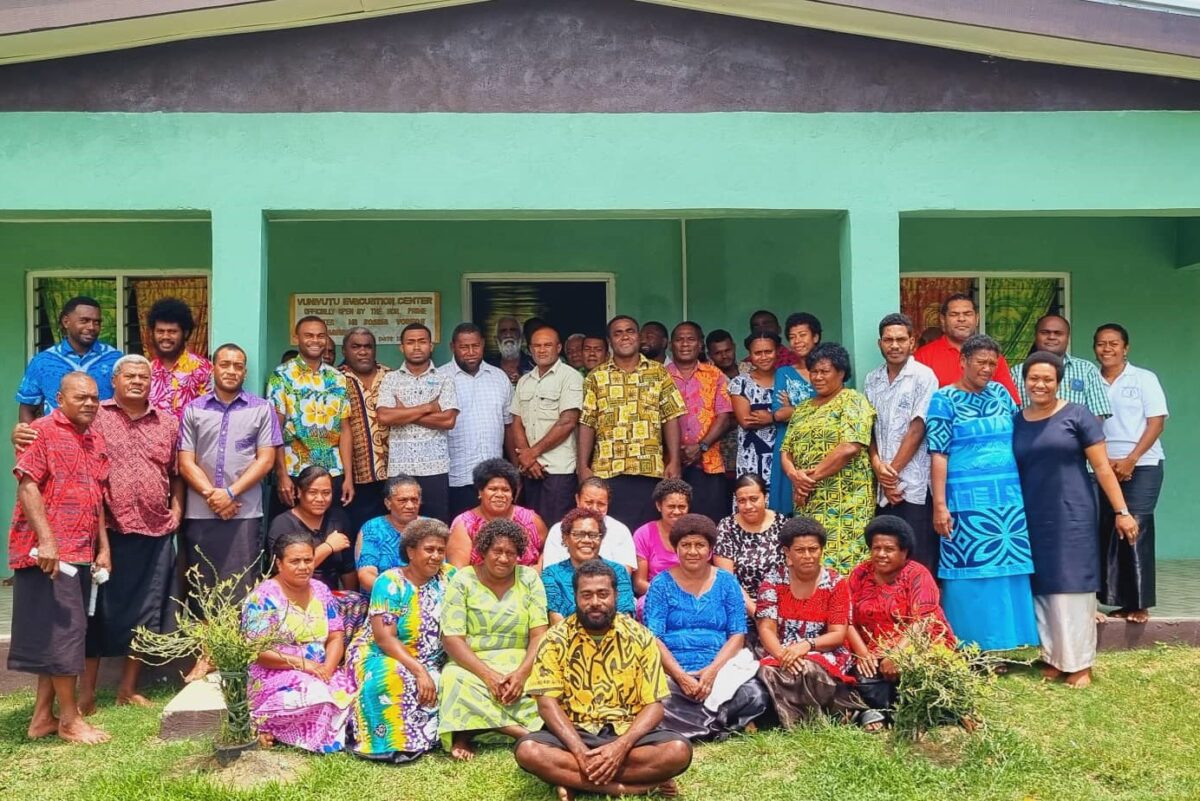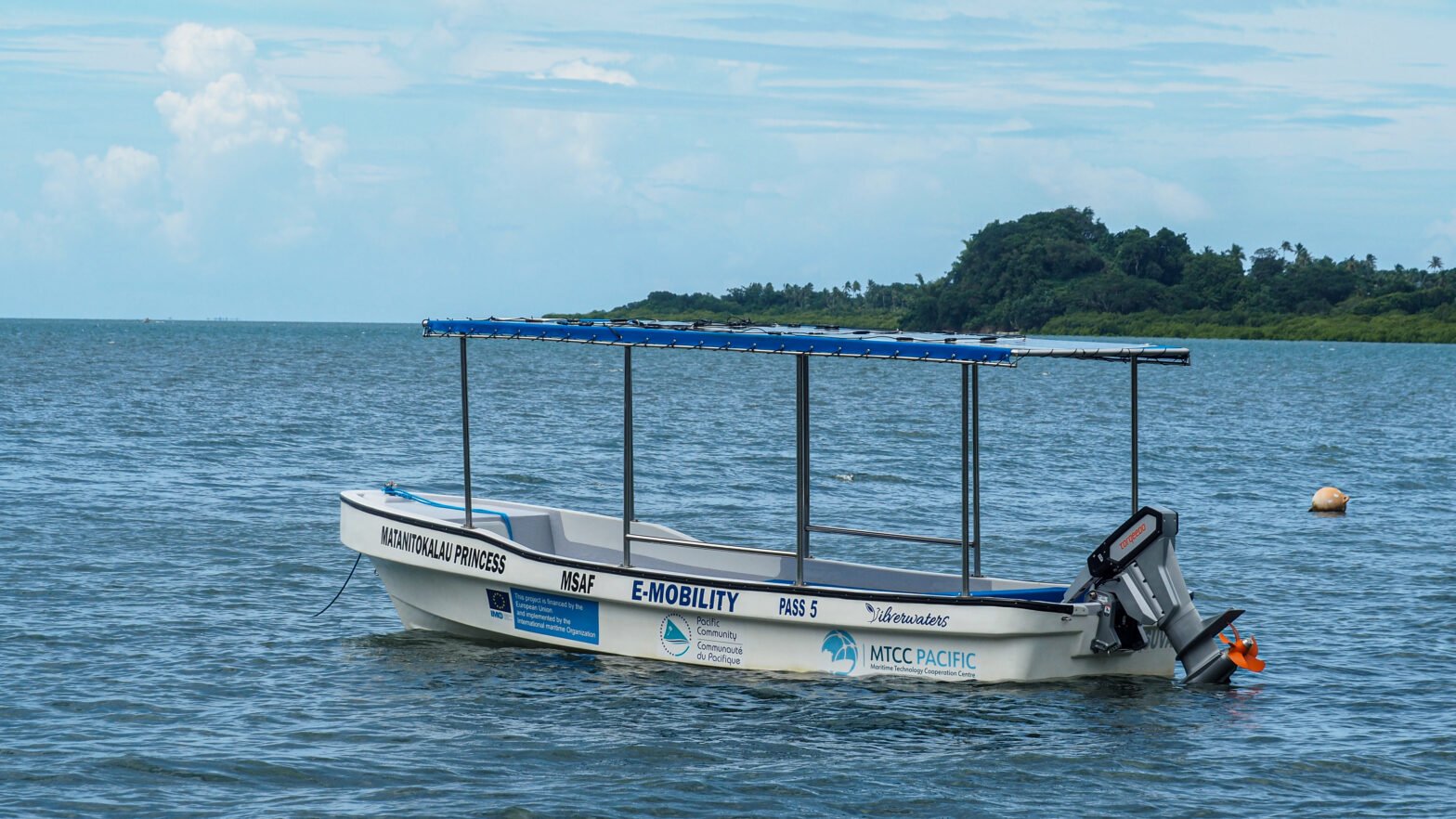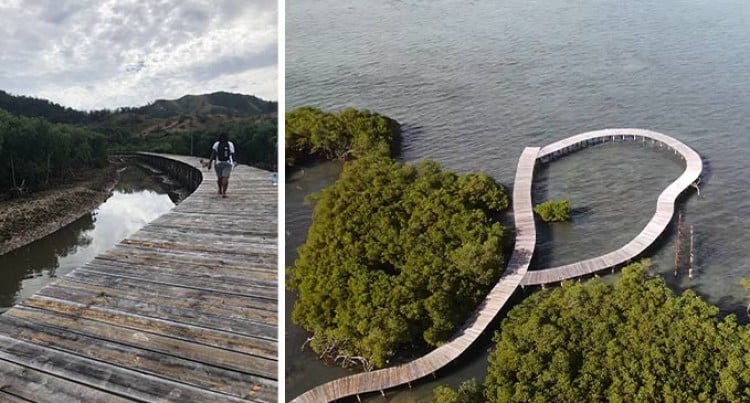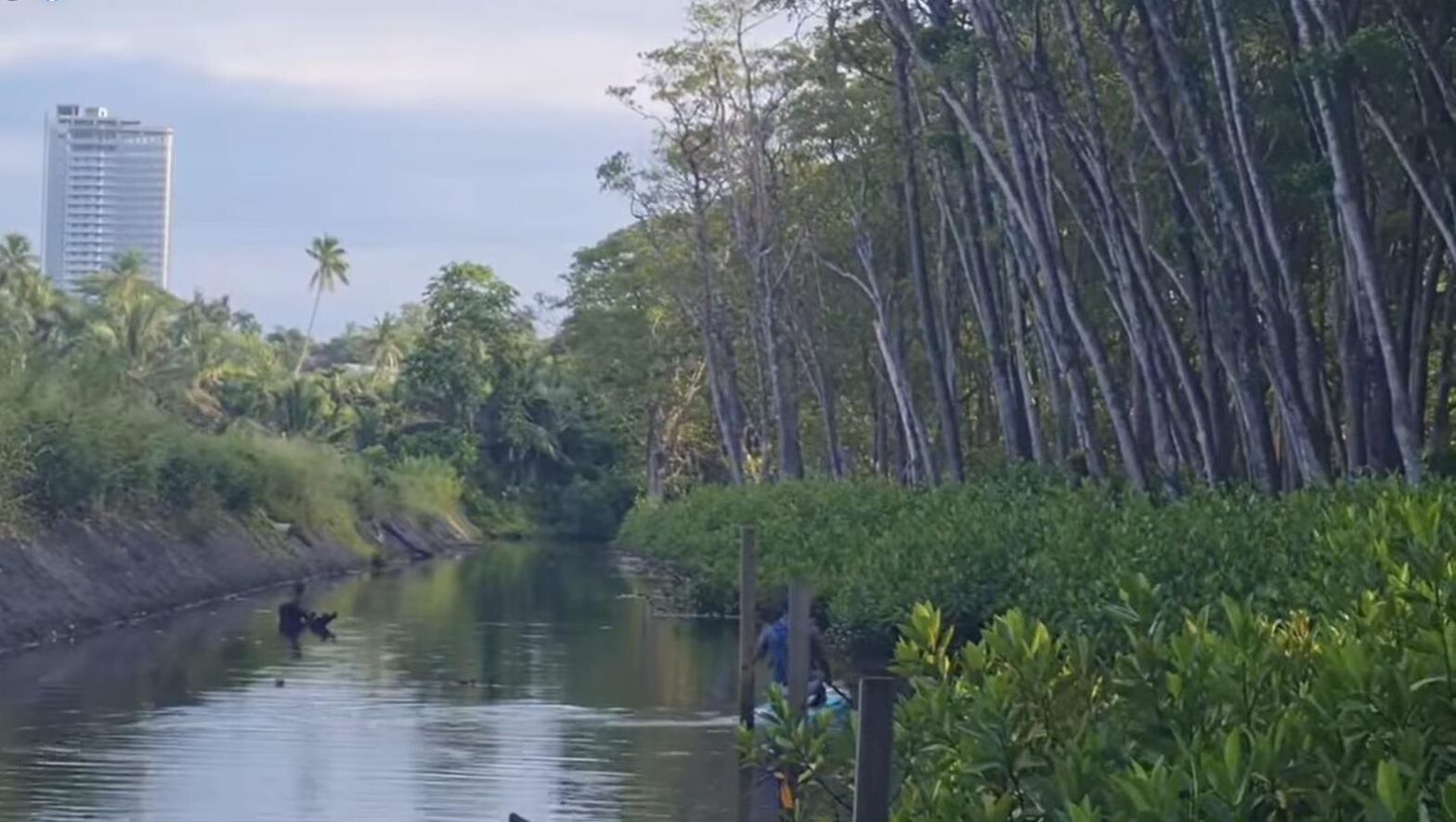Through the creation of their District Fisheries Management Plan which encompasses mangroves and its associated systems, community members from the Nadogo District in the Macuata Province are making concerted efforts to better manage their maritime resources from various threats.
These major threats to these ecosystems include poaching, land-based pollution, unsustainable fishing practices, cutting down of mangroves, unsustainable development, climate change impacts such as coral bleaching, ocean acidification.
As a way to address these threats to their livelihoods, the management plan contains fishing regulations in line with the national Fisheries Act, demarcated marine protected areas, relooking at the number of licenses issued to commercial fishers within their fishing ground as well as a governance component to monitor these conservation initiatives in addition to the designation of proposed Mangrove restoration areas and protected areas as well.
The members of the workshop are from the 10 villages and they are the traditional custodians of the I qoliqoli (customary fishing grounds) of Nadogo, Nubu and Raviravisawana. They contributed to the two-day intensive workshop alongside partners from government and the conservation sector which was convened by WWF Pacific with support from the Ministry of Fisheries.
The rehabilitation, promotion, and integration of traditional fishing practices are key elements of the district’s management plan.
“My vision is for Nadogo to be a prosperous district in time to come and in order to get there, all community representatives have a responsibility to protect and nurture their resources from ridge to reef,” said the Tui Nadogo and traditional head of the district, Ratu Ilisinati Malodali.
The Nadogo District is part of the Great Sea Reef (GSR) land and seascape which is the third largest barrier reef system in the Southern Hemisphere
Additionally, the GSR is very important for the livelihoods, food security, and cultural identity of these communities. A third of the Fijian population resides in the area, and the reef provides more than three-quarters of all inshore seafood sold in urban markets.
Echoing sentiments of the Tui Nadogo, the WWF GSR Programme Manager, Unaisi Malani, highlighted the need for proper management of natural resources.
“Community led natural resource management is crucial in ensuring best impact over the long term and is empowering to local communities,” said Malani.
She added, “The development and success of the Fisheries and mangroves management plan lies in the unity of the community and their commitment towards aligning themselves to the strategic vision of their district and province and to the National and Regional commitments and policies that their plans support”
Representatives from the Commissioner Northern’s Office, Ministry of Lands, the Ministry of Fisheries, Ministry of Forestry, Ministry of Agriculture, iTaukei Land Trust Board, Macuata Provincial Office, and the Community Centered Conservation (C3) team were among the more than 50 participants that attended.
All the stakeholders present supported the process in ensuring alignment to their respective priorities and plans.
This initiative is jointly funded by the New Zealand’s Ministry of Foreign Affairs and Trade and Climate Resilient by Nature (CRxN) which is an Australian Government initiative in partnership with WWF-Australia. CRxN supports nature-based solutions that restore and protect critical ecosystems, build sustainable livelihoods, and increase resilience to climate shocks.
The two-day workshop ended on Thursday (29 September 2022) last week.
This story was written by Tui Marseu and Jone Tuiipelehaki Raqauqau, originally published at WWF Pacific on 3 October 2022, reposted via PACNEWS.




